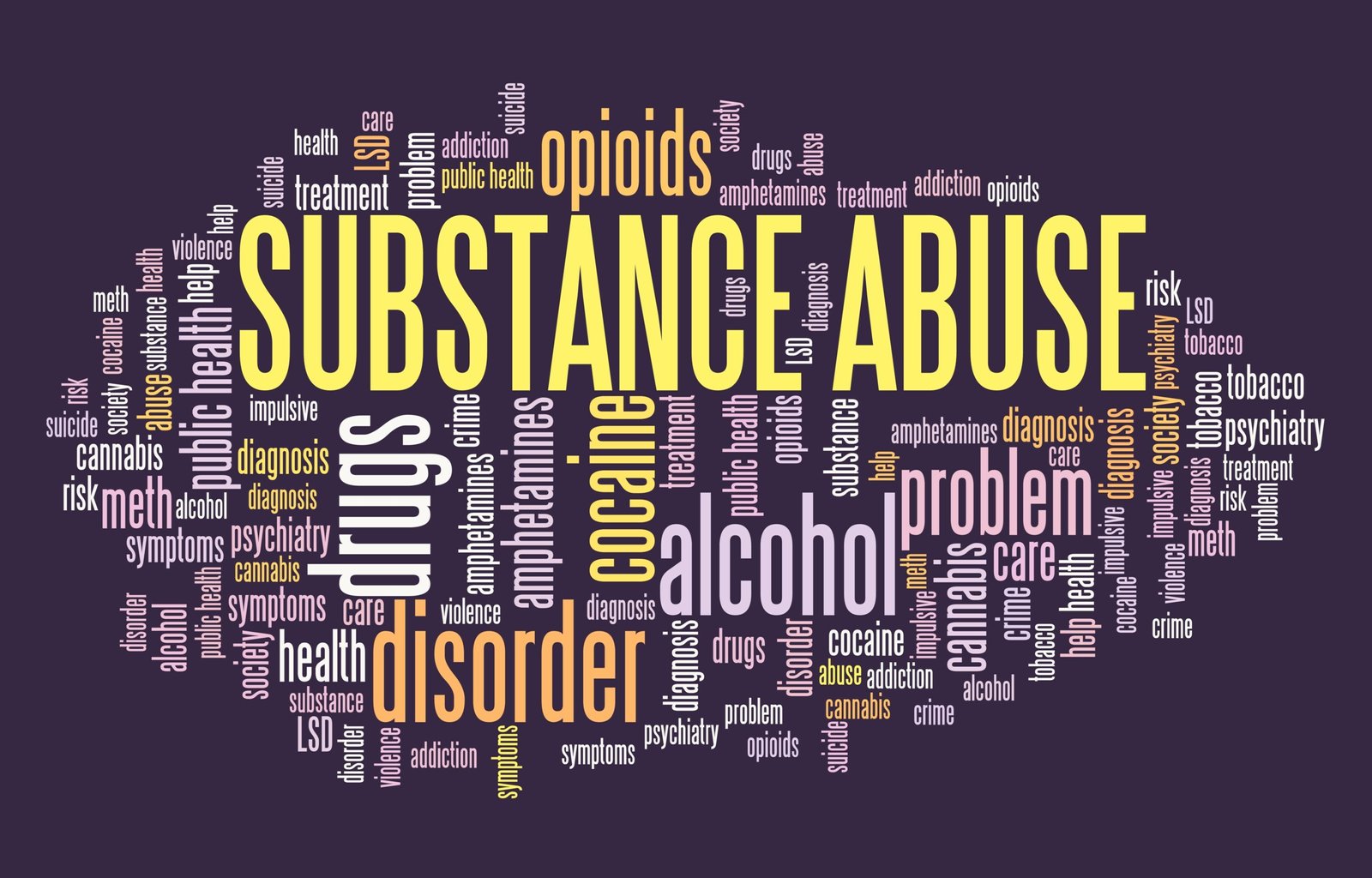
May 20, 2023
Substance abuse refers to the harmful or hazardous use of psychoactive substances, including alcohol, prescription medications, and illicit drugs, which can lead to physical, psychological, and social consequences. The impact of substance abuse on the body can be profound and multifaceted. Chronic substance abuse can damage vital organs such as the liver, heart, brain, and lungs, leading to conditions such as cirrhosis, cardiovascular disease, cognitive impairment, and respiratory problems. Additionally, substance abuse disrupts the brain’s reward system and neurotransmitter pathways, leading to changes in mood, behavior, and cognition. Substance abuse disorders often co-occur with mental health conditions such as depression, anxiety, and personality disorders, exacerbating symptoms and complicating treatment.
Symptoms of substance abuse vary depending on the type of substance and individual factors but may include cravings, tolerance (requiring higher doses to achieve the same effect), withdrawal symptoms upon cessation of use, impaired judgment, risky behavior, social withdrawal, and neglect of personal responsibilities.
Effective treatment for substance abuse typically involves a combination of medical intervention, psychotherapy, and support services. Detoxification programs may be necessary to safely manage withdrawal symptoms and stabilize individuals physically before initiating further treatment. Behavioral therapies such as cognitive-behavioral therapy (CBT), motivational interviewing, and contingency management help individuals identify triggers, develop coping strategies, and modify maladaptive patterns of thinking and behavior associated with substance abuse.
Medications may also be prescribed to reduce cravings, alleviate withdrawal symptoms, or address co-occurring mental health conditions. In some cases, residential or outpatient rehabilitation programs provide structured support and resources to help individuals maintain sobriety and transition to a healthy, substance-free lifestyle. Peer support groups like Alcoholics Anonymous (AA) or Narcotics Anonymous (NA) offer ongoing encouragement, accountability, and camaraderie for individuals in recovery. Overall, addressing substance abuse requires a comprehensive, individualized approach that addresses the physical, psychological, and social aspects of the disorder, with a focus on long-term recovery and improved quality of life.


